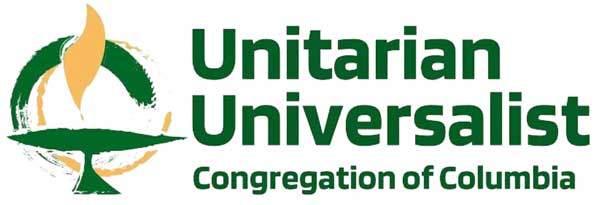Online Compost Roster
Sign-up or check the schedule here.
Note: You don’t need to create an account or use a password.
Our Composting Program
2018 marked the return of composting to UUCC, as the Green Team, in collaboration with the Kitchen Committee, began a program of collecting and composting food wastes and paper products from our events. Food wastes and napkins are collected in a green tabletop canister; paper plates, when we use them, are collected on the table top itself or in a tub.
of collecting and composting food wastes and paper products from our events. Food wastes and napkins are collected in a green tabletop canister; paper plates, when we use them, are collected on the table top itself or in a tub.

Where does the compost go? At the end of each event, a member of the Green Team collects the bin and empties it in our main compost bin, located behind the kitchen door outside the RE wing. Paper plates, which are relatively heavy and may take longer to break down into usable compost, may be taken off-site by Team members to be composted at home.
When the compost finishes ‘curing’, we take it to the wooden bin in the garden, ready for use in our garden or on our plantings!
If you’d like to gain some hands-on composting experience, talk to a Team member. You can also sign up on our online duty roster.
The User’s Guide to Compost, Recycle & Trash Etiquette at UUCC
But what should, and shouldn’t, go into the compost? Or the recycle bin, for that matter?
Here’s a quick list:
Compost
Food waste (though meat and oil may be put in trash)
Napkins
Small paper plates (large paper plates are separated)
Recycle
Plastic cups & bottles
Cans (aluminum & ferrous metal)
Cardboard, including waxed cartons
Glass
Trash
Meat & bones
Plastic bags,packets, & straws
Aluminum foil

Further Information
Composting is–forgive us!–a hot topic, and not just here at UUCC.
But it’s one that intimidates a lot of people. What do you need to do? What materials can you compost? And what benefits can you expect?
It turns out that there are a lot of methods of composting, from “sheet composting”–simply layering compostable material on the ground in the open–to “biodynamic composting”–the complications of which could only have been invented by a philosopher (in this case, Rudolf Steiner).
If you’d like to find out more, there’s a wealth of information available at compostjunkie.com:
